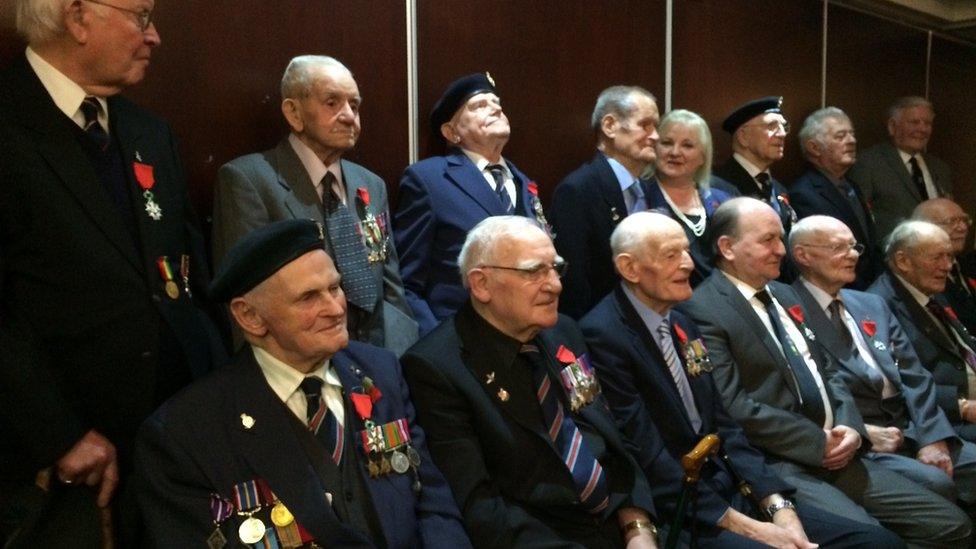Bringing D-Day's NI links to life in the classroom
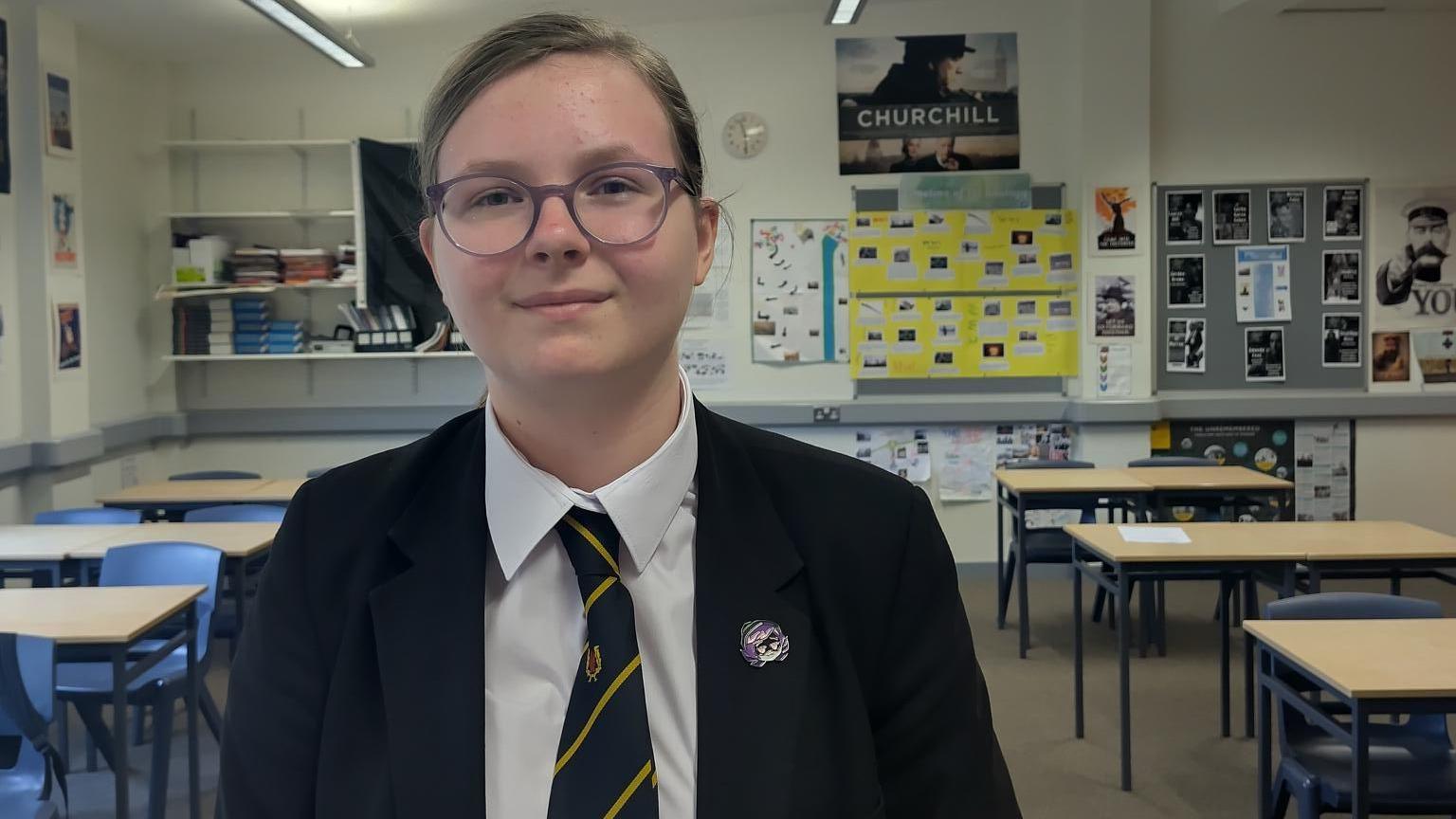
Emily said that she is proud of a great-grandfather who "fought for his country"
- Published
One of the secrets to teaching history is finding a way of connecting pupils to that past.
When it comes to D-Day there is no shortage of links to Northern Ireland.
Inside a classroom in Magherafelt High School in County Londonderry, the first images projected on to the wall are not pictures of Normandy’s beaches, but photographs of cliffs in County Antrim.
It was there that American soldiers first began training for a mission that would eventually lead them to France.
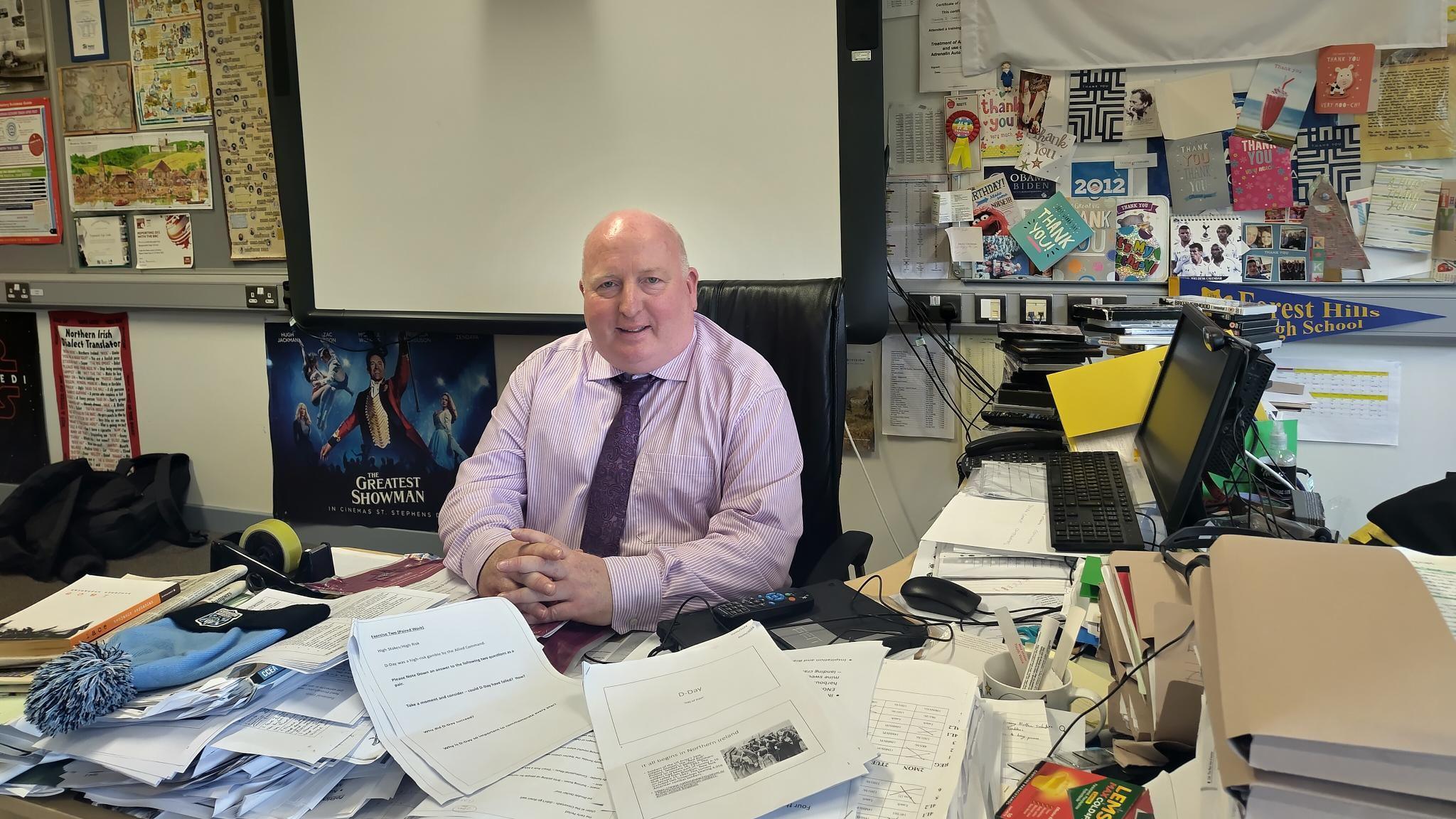
Denver Charles said he makes sure to teach the human cost of war
“This is important history because it starts here,” said Denver Charles, head of history at the school.
“It grounds it for the kids that they were becoming commandos here and they went on to become part of the biggest invasion fleet in history.”
What was D-Day?
On D-Day, also known as the Normandy landings, troops from the UK, the US, Canada, and France attacked German forces on the coast of northern France, on 6 June 1944.
It was the largest seaborne invasion in history and one of the most significant events in World War Two, which marked a turning point in the fight against Nazi Germany.
The stories of spies and Spitfires that laid the way for Operation Overlord on D-Day, which is a military term for the first day of an operation, are an easy way to engage the 13 and 14-year-olds in Mr Charles' class.
One of the exercises set for pupils is to rank, in terms of importance, the different types of military preparation done ahead of 6 June 1944.
Many select the reconnaissance work used to prepare a battle plan.
Others choose the false propaganda that suggested the Allies were likely to attack further north, near Calais.
And they listen intently to the elaborate ways the Germans were fooled, including the positioning of fake inflatable tanks that looked real from the air.
However, alongside these grand tales, Mr Charles makes sure to teach the human cost of this war.
On both sides, huge numbers of people were killed.
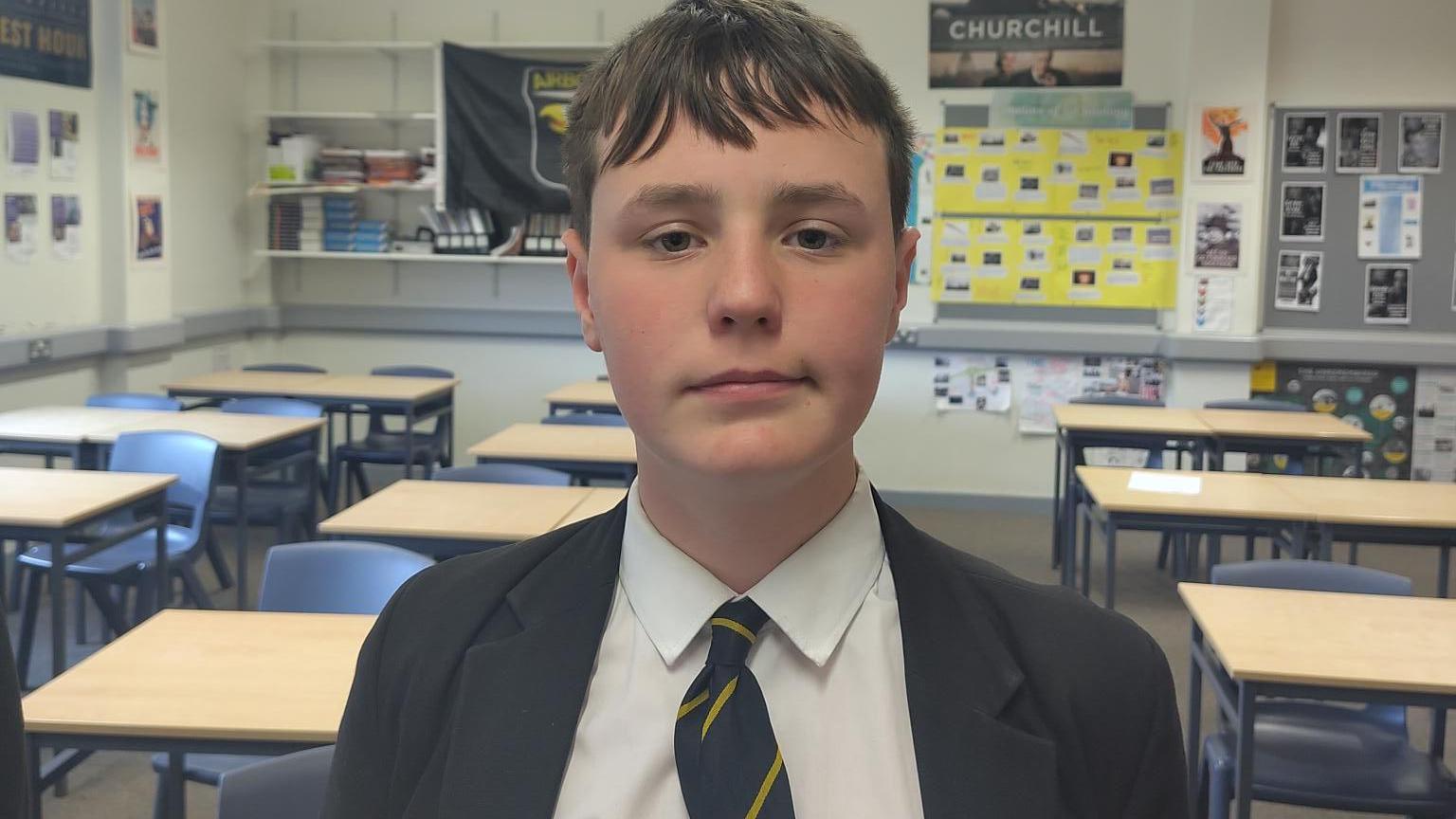
Donny imagines a solider on the D-Day crossing "knowing they might not come back"
“You wouldn’t expect a human to have to go through that,” said Donny, who is 13.
“To go across on a boat, knowing they might not come back and ever see their homeland or their family ever again.
“And having to deal with guys sitting in posts with machine guns shooting at them.”
Eighty years on, conflict continues to dominate the headlines.
The battlegrounds might be further away than France but the pupils see parallels with wars happening today.
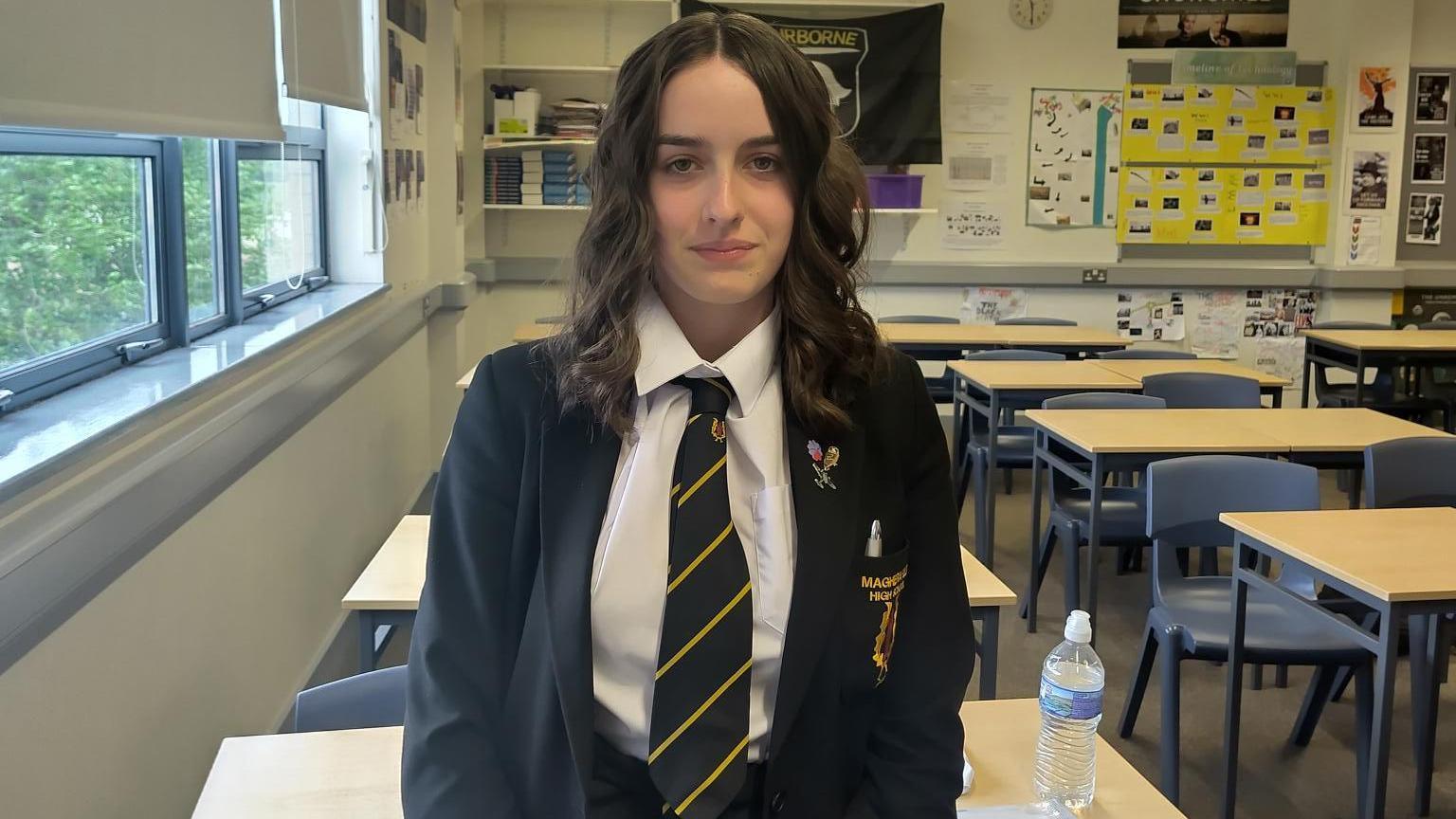
Kate hopes that learning history will teach people that "dictators aren't a good thing"
“Hopefully, people should learn that dictators aren’t a good thing,” said Katy.
“They cause millions of deaths and unfortunately there are still conflicts happening, like in Russia and Ukraine.”
In recent weeks, the prime minister has warned of a more dangerous world.
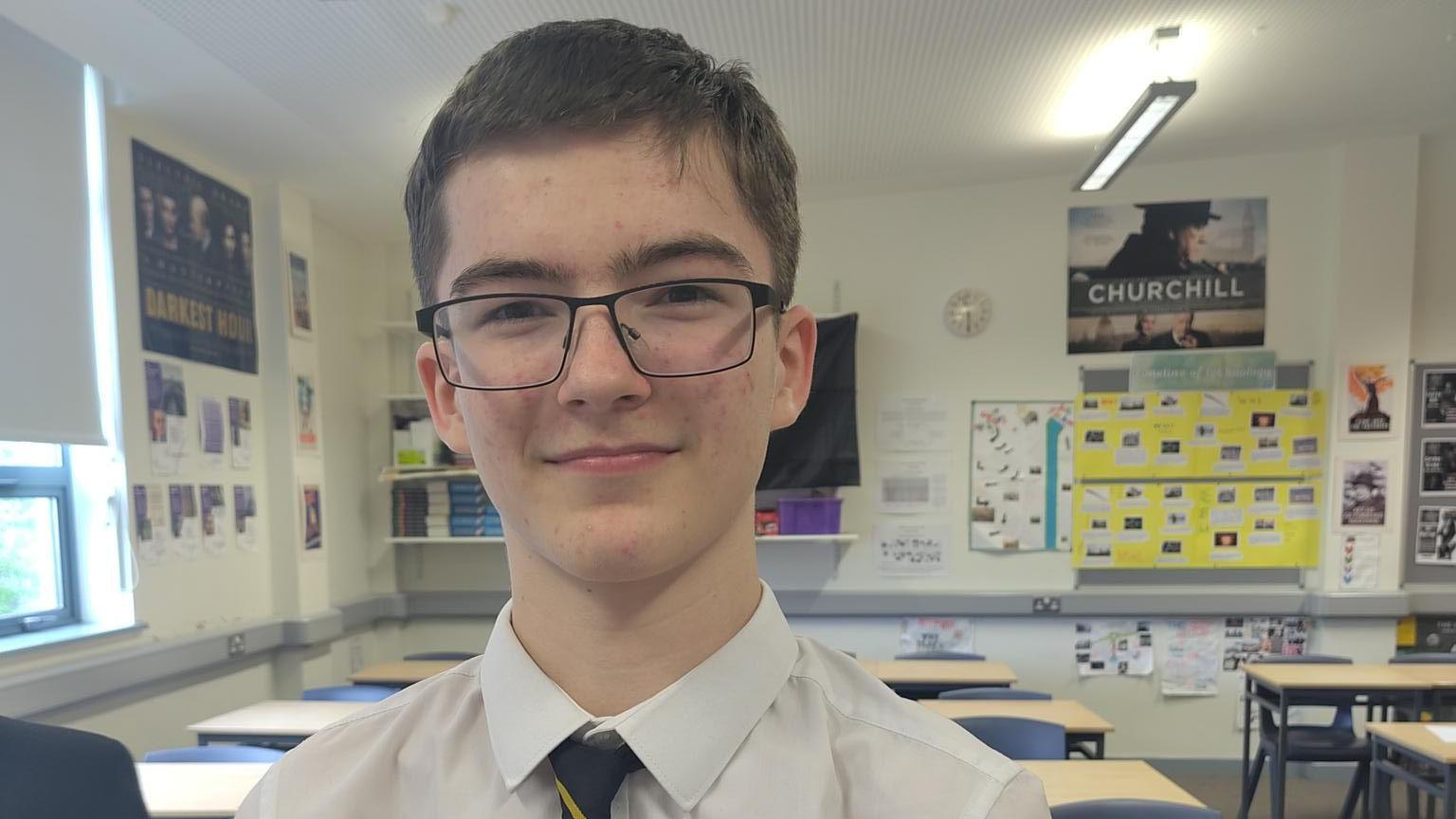
Robbie said the class learnt about how many people died on D-Day
One of the questions this class is having to consider is whether a conflict on the scale of World War Two could happen again?
“I think we have learned some lessons,” said 14-year-old Robbie.
“We’ve discovered the risks that come from this big a war, considering just how many innocent people died, especially on D-Day.”
Some of the pupils said they were planning to attend events to mark the anniversary this week.
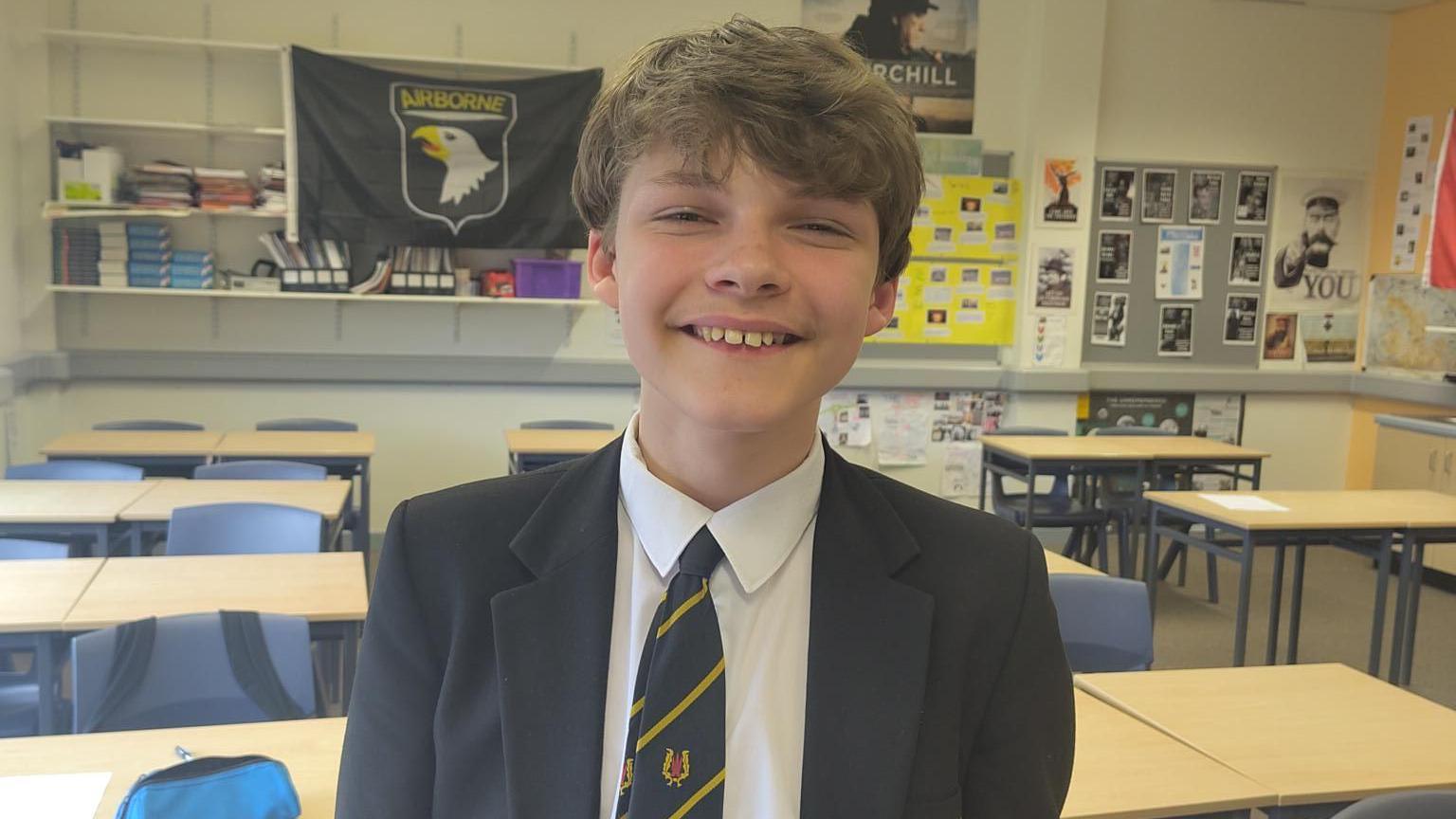
Ethan said that meeting a veteran of World War Two would be a "surreal experience"
“I want to go to different ceremonies,” said Ethan, who is part of the Year 10 class.
“Even just to meet a veteran and say a couple of words to them would be a surreal experience.”
With each year there are fewer and fewer veterans left to tell of their direct experience of the war.
For many pupils this is more than a school subject, it is also family history.
“My granda’s dad fought in World War Two,” said Emily.
“Mostly I am proud of my great-grandfather, although I never met him.
“He went out and fought for his country.”
Related topics
- Published11 November 2023
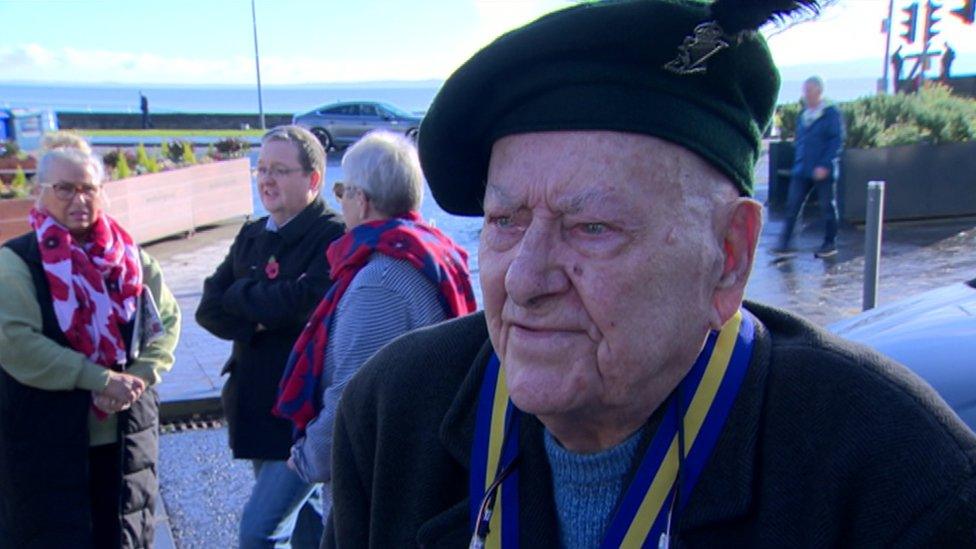
- Published6 June 2019
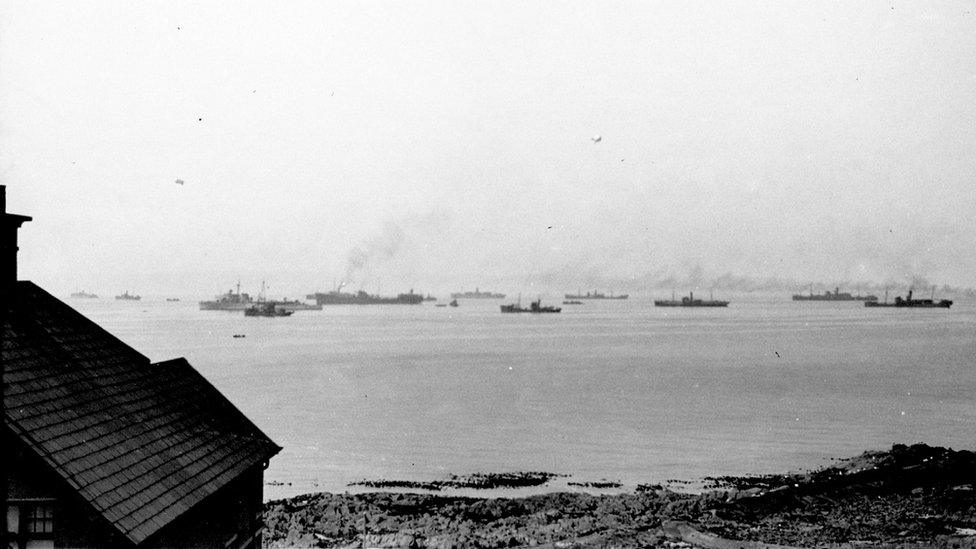
- Published16 February 2016
